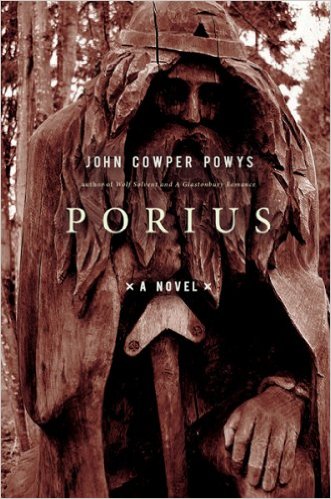Home > Book Review: Porius, Endure to the End
Book Review: Porius, Endure to the End

It was an exhilarating, bewildering and mind-altering read that left me feeling like Porius when, “he had begun to feel as if the inmost pith of his being was being nibbled away by the rats of purposeless dissolution…”
Tungerong larry ong — endure to the end — is both a rallying cry of the main character of this incredible, and incredibly complex, book, and a much-needed encouragement to readers. At 762 pages, each filled with epic, breathless sentences crackling with mystical subtext, unpronounceable Welsh names and a gargantuan cast of characters, this is not a book one should enter into lightly.
It took me almost three months to finish, but the journey was worth it. Porius is gripping and challenging and dense and impenetrable and layered with swirling currents of meaning. It is an insane mix of history and magic, action and romance, and philosophy and religion. There are giants and magicians (including Merlin), scheming druids and savage forest people with poisoned arrows, the foppish court of King Arthur and grim-faced Saxon invaders, owls that become women, nature worship, magic rivers, enchanted mists, old curses, ancient myths and even more ancient burial grounds and all manner of petty, squabbling gods and their slavish worshippers — from Saturn to Mithras to Yahweh.
The set up is simple: across a week, Porius, son of the ruler of Edeyrnion, finds himself caught between opposing armies, religions and lovers with the fate of Wales, Britain and perhaps the entire world at stake. On the surface, it is a fictionalized history of the people, events and myths that shaped the British Isles, but the true power of Porius is the deeper, timeless excavation of what it means to be human — to think, to feel, to experience the world through constraints of our own senses, to be in love and lust, to question our own existence and to carve out purpose and find meaning in the indifferent chaos around us.
Porius (the character) has two peculiar attributes. One is almost unnatural strength — clearly on display when he uses the corpse of an enemy to batter more enemies to death. The other is a mental state he cultivates called “caviosengiarizing.” It defies a simple definition, but I think it means something along the lines of being able will his executive mental functions — the “I-am-I” part of his brain — into the background in order to let the experiencing part of his brain have full control and, in that process, allow the external world to flood in as it wants to be experienced. I think.
Through the constant, meticulous examination of the smallest details of life around him — a leaf, a spider, a pile of feces — and his constant rumination on the act of examining these details, Porius (courtesy of author John Cowper Powys) lays open history, time, space and the human experience — especially as filtered through the physical and emotional act of love.
It was an exhilarating, bewildering and mind-altering read that left me feeling like Porius when, “he had begun to feel as if the inmost pith of his being was being nibbled away by the rats of purposeless dissolution…”
I bought this edition of Porius years ago when the fully restored version (adding 500-plus pages cut by the editor from the original final draft!) first came out, but could never bring myself to set aside the time. Powys is known for elevating place to a near-mystical status and, fittingly, I started reading it on a recent road trip to Yosemite. Sharing the world of this brooding forest prince, this mighty warrior and natural philosopher, while wandering through the towering sequoias and craggy mountains of Yosemite only deepened the magic and the mystery.
